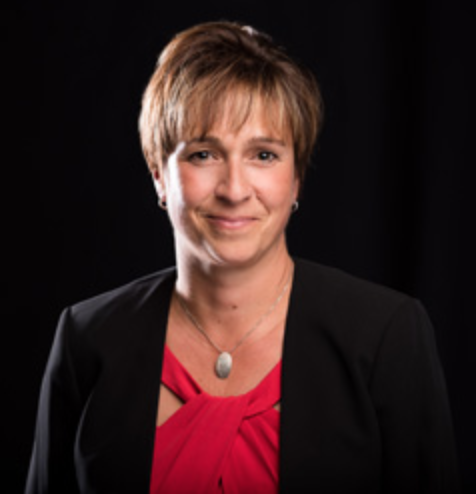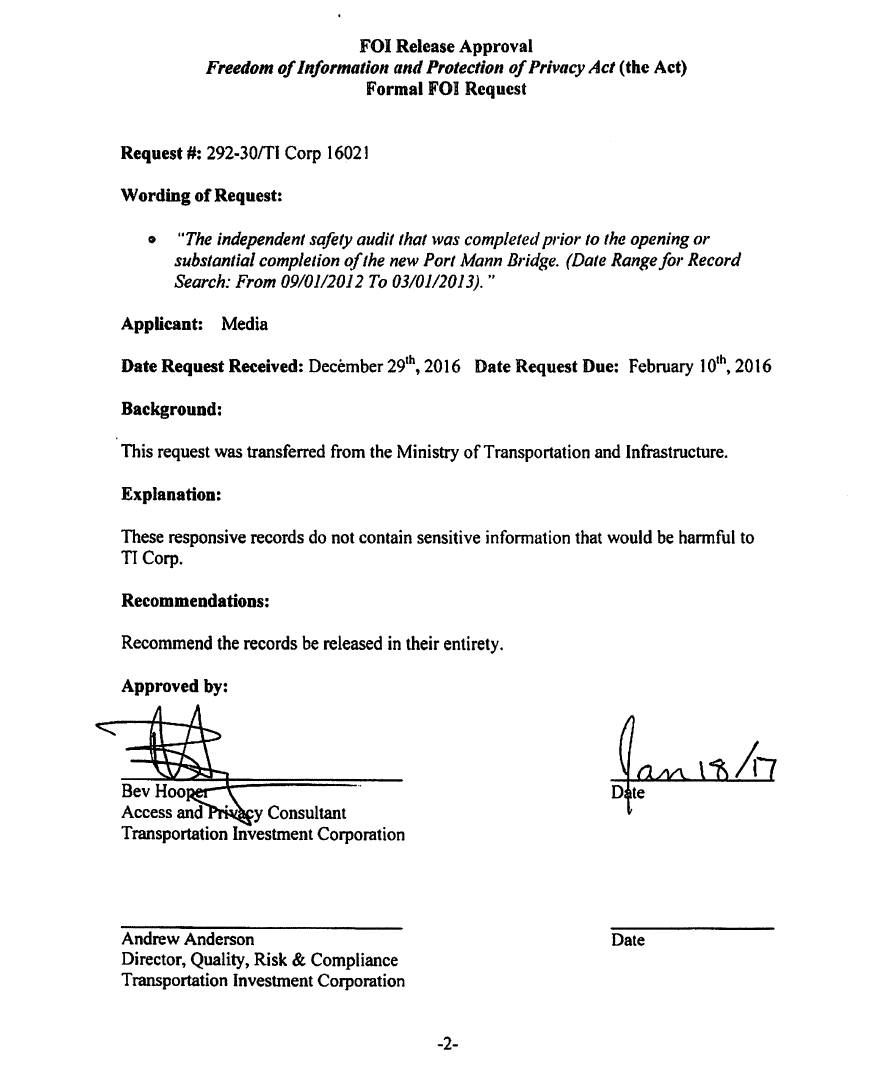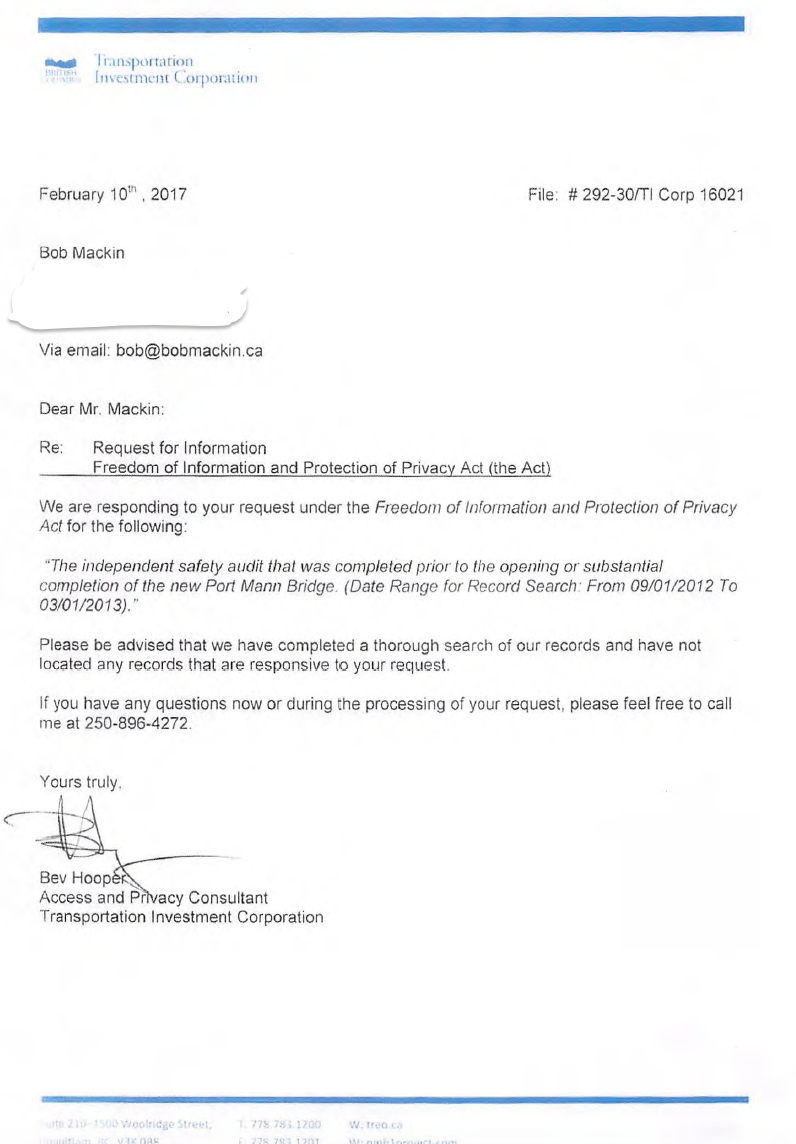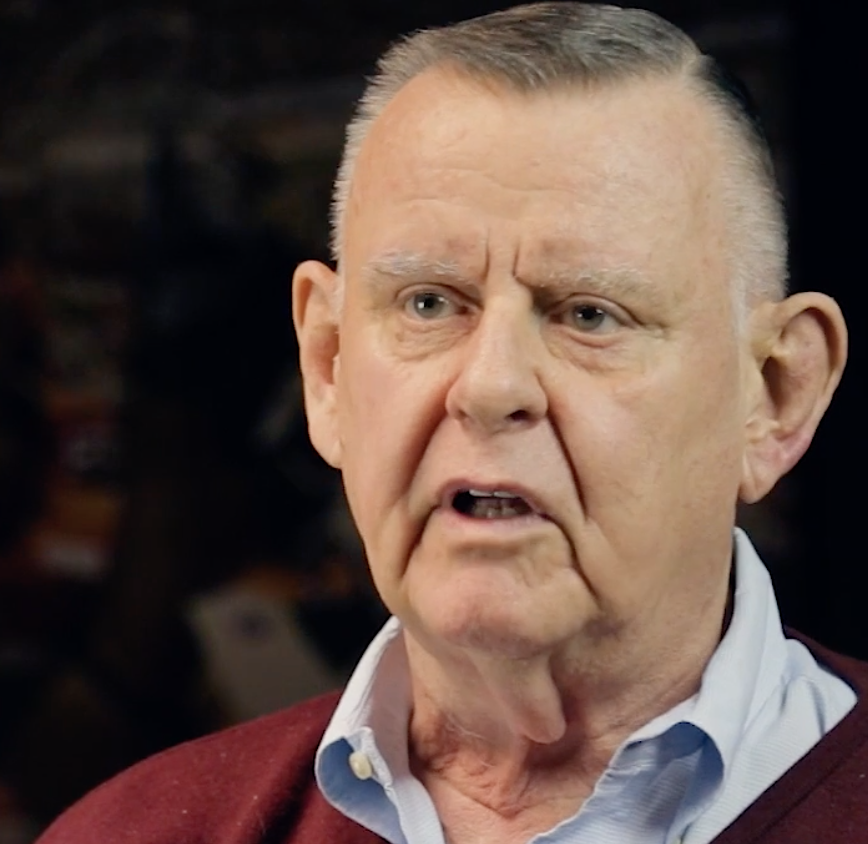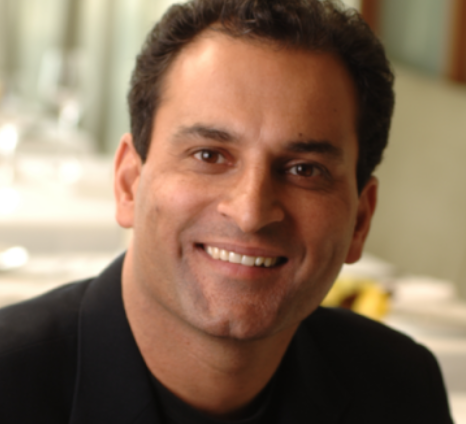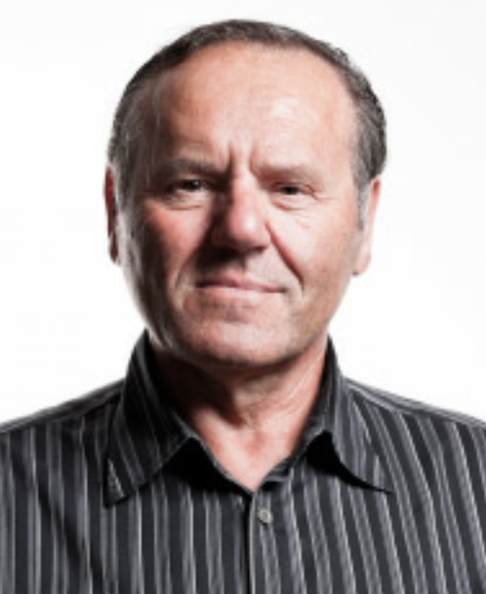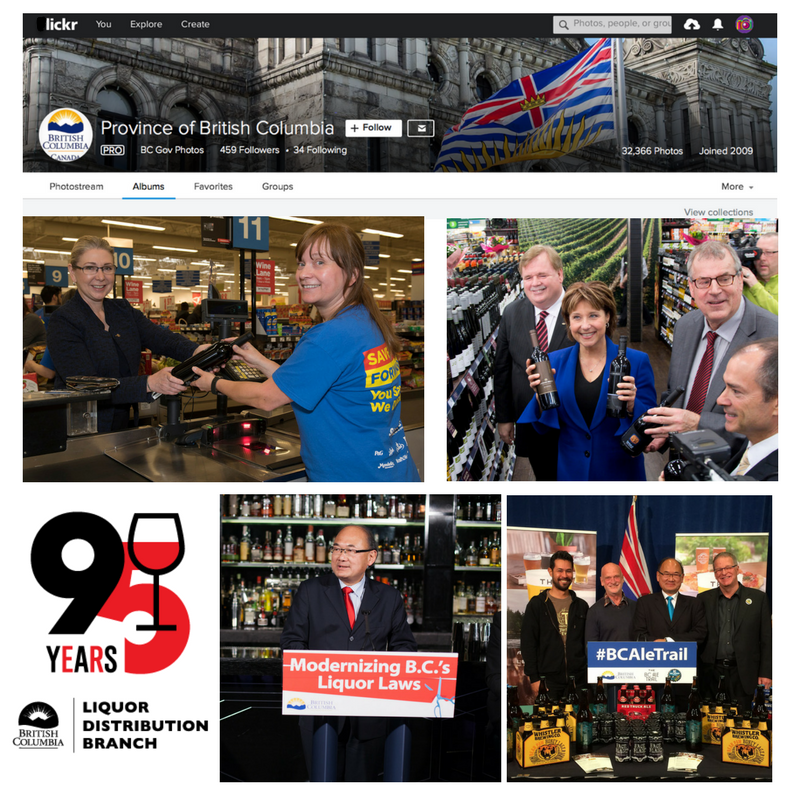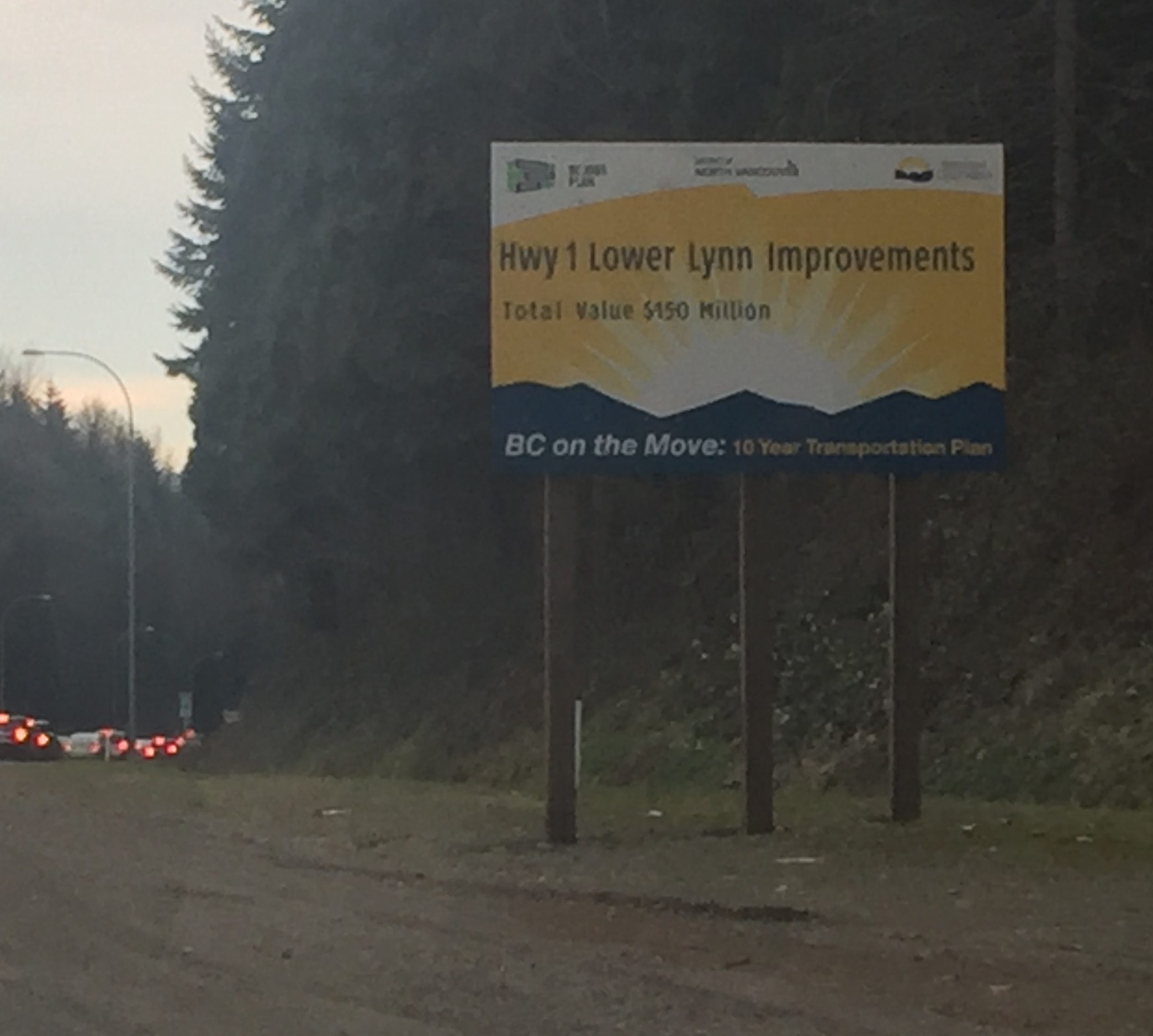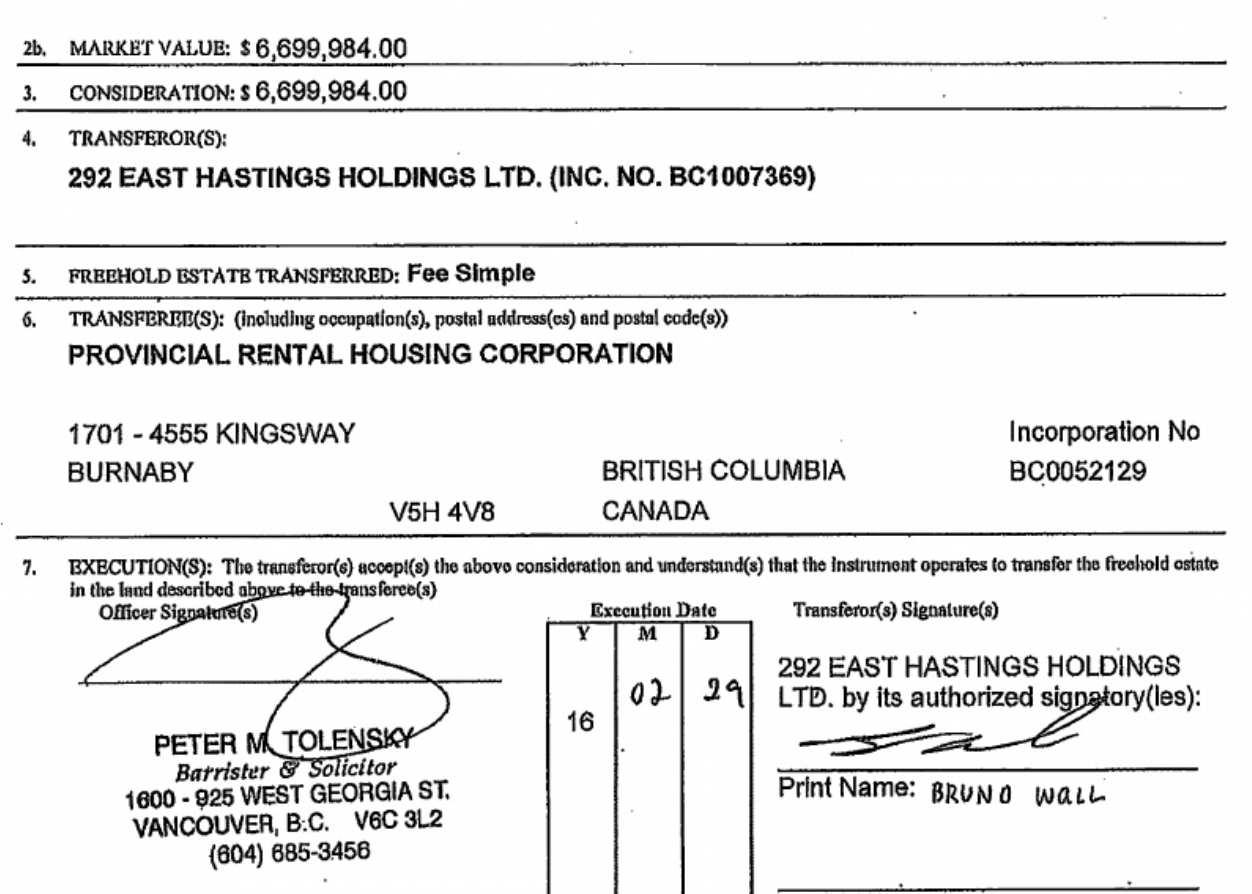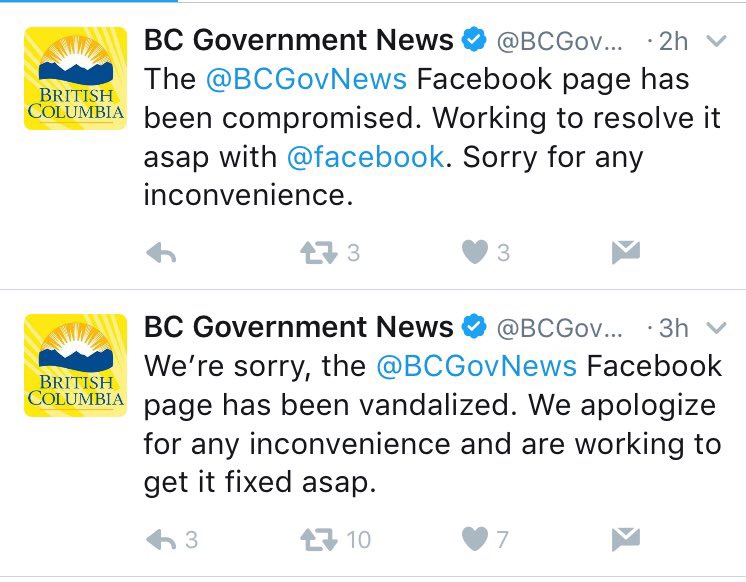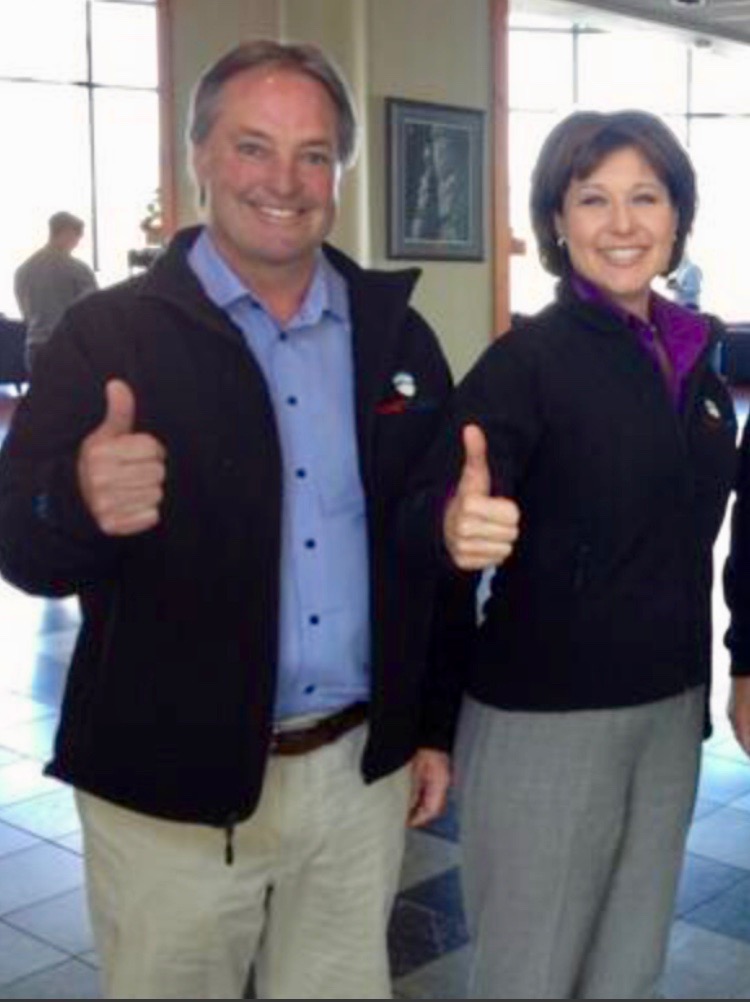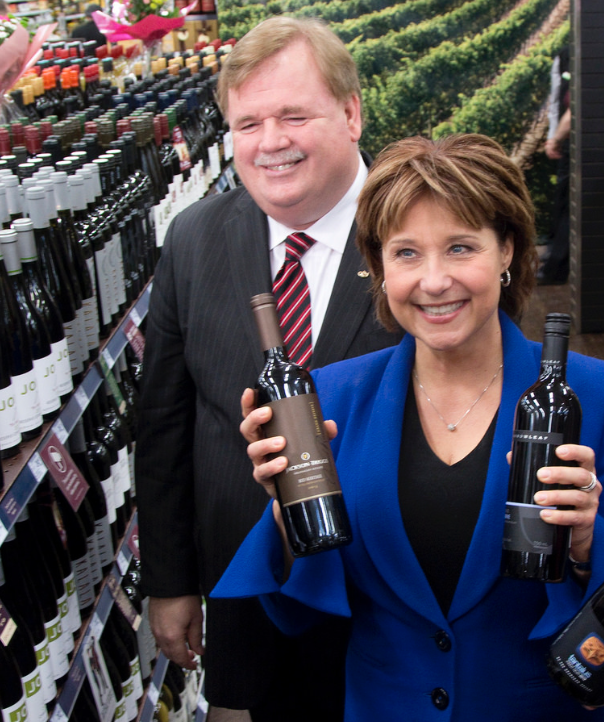Who knew it? Clark drives a Buick from donor Dueck
Bob Mackin
Premier Christy Clark drives a Buick Enclave sport utility vehicle supplied by a BC Liberal Party donor’s auto dealership.
But you wouldn’t know that by looking at the public version of her annual conflict of interest disclosure.
Clark’s 2016 public disclosure statement, filed last November, said she received a leader’s allowance from her party, but no gifts or benefits. Not even the Buick.
The form Clark submitted to Conflict of Interest Commissioner Paul Fraser is officially confidential, but a summary is published once a year through the Clerk of the Legislative Assembly.
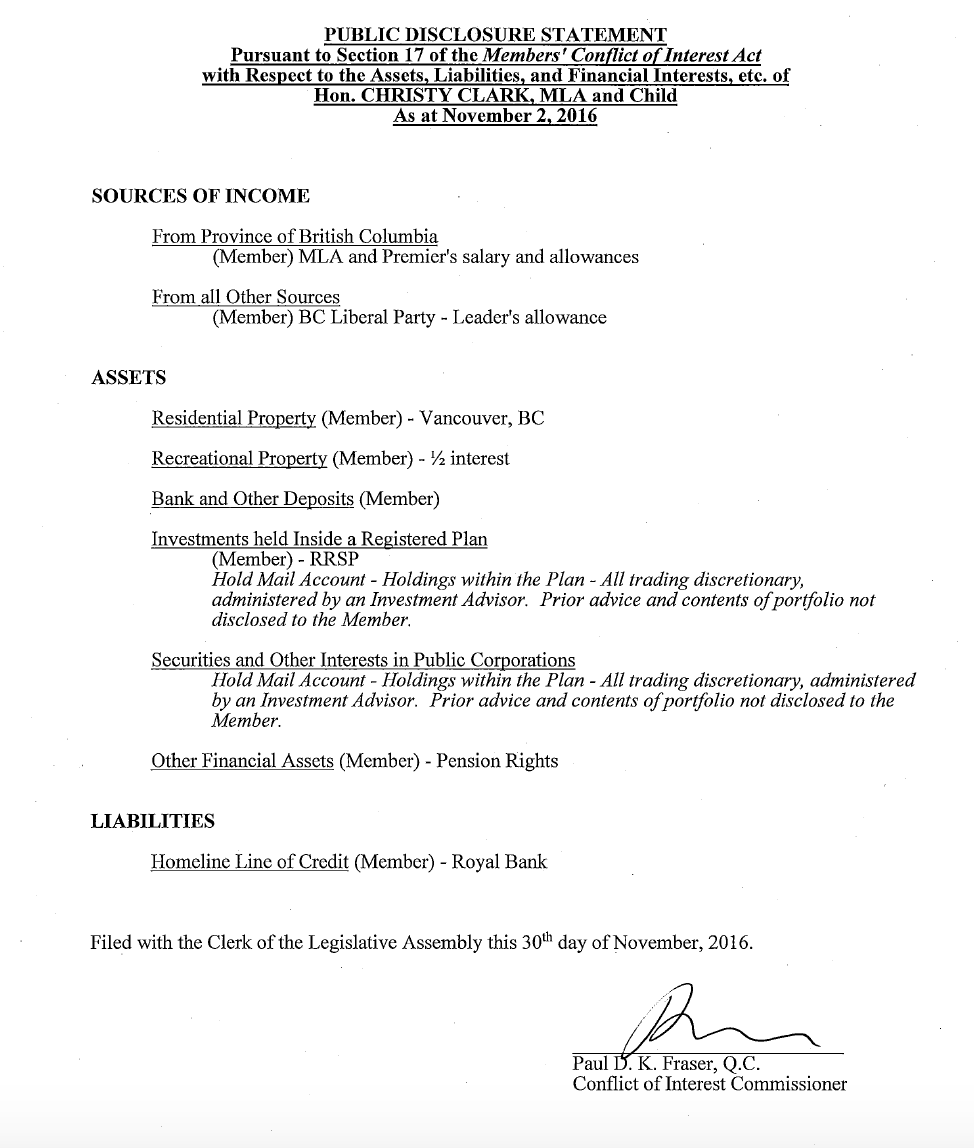
Clark’s 2016 form omits Buick
The annual forms that MLAs are required by law to submit annually to Fraser include a section that says MLAs must disclose personal benefits connected directly or indirectly with the performance of their official duties “immediately, if the value of the gift or benefit exceeds $250.”
Dueck Auto Group CEO Moray Keith told theBreaker that Clark’s vehicle is leased for her by the party.
The party admitted in 2016 that it paid Clark a $50,000 annual stipend, over and above her $195,000 salary as premier and MLA for Westside-Kelowna. In January, she announced that she would no longer take the stipend, but would instead be reimbursed by the party for expenses.
In a 2012 interview with The Tyee, Clark said she did not know the amount of her party stipend, but called it a “car allowance.”
“I do a lot of driving,” Clark told Andrew MacLeod. “I do a lot of driving for party events and those kinds of things.”
Clark is usually chauffeured by RCMP bodyguards in a full-size Chevrolet SUV to and from the $3.7 million Dunbar house in which she is a tenant.
Liberal spokesman Emile Scheffel did not respond to requests for comment.
“Just because B.C. has probably the weakest conflict of interest legislation for MLAs in the country is not an excuse for not being compliant,” IntegrityBC’s Dermod Travis told theBreaker. “The premier, who has consistently promised us the most open and transparent government in Canada, should not just stop where the law requires, but set a standard so that there are no suspicions of any particular preferential treatment being given to a party donor, whether it’s a cash donation or a donation in kind.”
Meanwhile, Keith said he is donating the use of four vehicles from Dueck GM to cabinet ministers Peter Fassbender and Andrew Wilkinson and rookie candidate James Lombardi for the duration of the election campaign.
Vancouver-Quilchena’s Wilkinson and Vancouver-Point Grey’s Lombardi have both Tweeted photos of the advertising-wrapped Chevy Volts they are driving. Neither mentioned Dueck in their Tweets, but the dealership’s decal was visible in Lombardi’s photo.
“We’ve got some friends who are Liberals, carrying the Liberal flag,” Keith, a Liberal-appointed B.C. Lottery Corp. director, said. “I like their economic policies, I like the fact that we’ve got the best economy in the country.”
Keith said Dueck’s loans of cars and trucks to candidates are worth $750 to $1,000 each. “We give them a note and they turn around and put it on their election form for what we value it at.”
They are probably not the only candidates driving donated cars on the road to May 9.
Blair Qualey, president of the New Car Dealers Association of B.C., said his organization will, if asked, connect candidates and charities to dealers in their area.
“We get asked for support from all sorts of folks, we leave it up to the dealer to do what they want in their own ridings,” Qualey said. “We have dealers that do business in strong NDP ridings. We encourage our members to be active in their own communities.”
From 2005 to 2016, Keith and his Dueck Auto Group donated $143,811.47 to the Liberals.
The New Car Dealers, which counts Keith as a member of its board of directors, are among the biggest supporters of the Liberals. Between 2005 and 2016, they donated $1,274,879.58.
In February, the BC Liberal government announced another $40 million in public funding for the New Car Dealers to dole out $2,500 to $6,000 subsidies for buyers of electric, hybrid and hydrogen fuel cell vehicles worth up to $77,000. The Liberals are promoting electric vehicles to help justify BC Hydro’s $9 billion Site C dam development.
Qualey said the association administers the program based on cost-recovery, “so customers don’t have to chase a bureaucrat in Victoria to find where their $5,000 is. They get it at the point of sale.”
For the year-ended March 31, 2016, the New Car Dealers received $5.87 million in transfers from the Ministry of Energy and Mines, which is responsible for BC Hydro.
What the rules say
B.C. has no laws regulating the size or source of donations to provincial or municipal political parties or candidates. Elections BC spokesman Andrew Watson said there are rules around how candidates and parties report donations of goods and services.
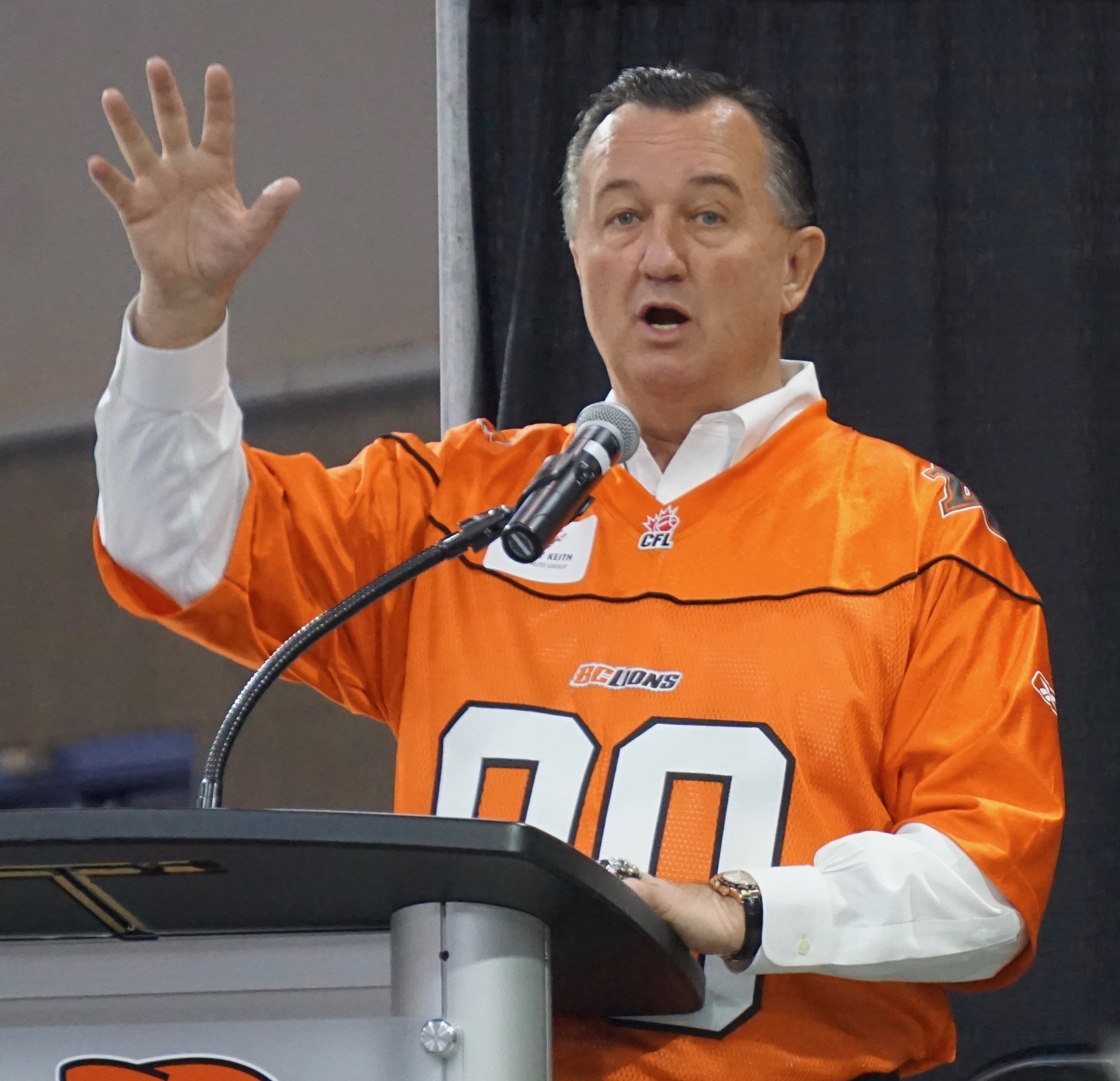
Dueck owner Moray Keith (Mackin)
“For goods and services, the value of the contribution is equal to the market value which is defined by the Election Act as the lowest price charged for an equivalent amount of equivalent property or services in the market area at the relevant time,” Watson said.
“If a vehicle is provided for free of charge to a campaign, the value of using that vehicle is a permitted political contribution. The value of using the vehicle during the campaign period, as well as any additional costs incurred to add signage, would be an election expense subject to the limit.”
For the 2013 election, the Liberals told Elections BC that they received $8,096,474.55 in contributions of money and $206,660.97 in goods, services and discounts (including contributions through loans and debts). The NDP, meanwhile, reported taking in $9,126,970.95 in money and $202,842.29 in-kind.
During the Vancouver civic election of 2014, leaked documents from CUPE Local 1004 indicated that it paid $10,000 to workers who took time off to volunteer on political campaigns endorsed by the union. The union’s B.C. and national offices matched the political action fund, dollar-for-dollar.
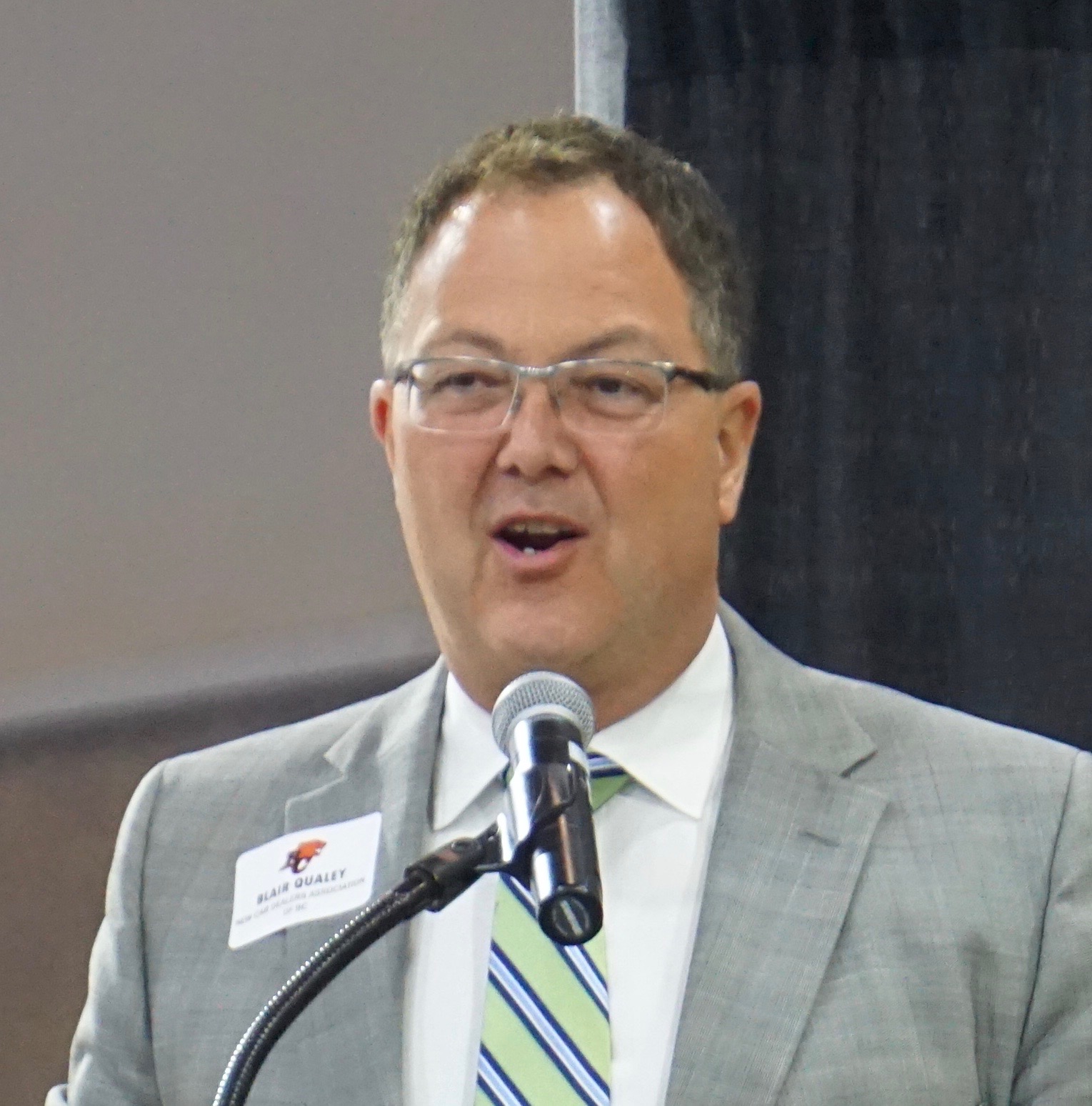
New Car Dealers’ Qualey (Mackin)
“Under section 186(2)(a) [of the Election Act], if an employer provides compensation to an individual for their services on a campaign, the value of their services is a permitted political contribution made by the employer,” Watson said. “The value of their services may also be an election expense subject to the expense limit depending on the nature of the services used during the campaign period.”
On the topic of campaign financing laws, Qualey said “ultimately it’s up to the people of B.C. to decide what’s good for them. At the moment we don’t see any problems with the way it is now.”
One of the association’s two registered lobbyists, Mark Jiles, was mentioned in a Globe and Mail story last month about lobbyists breaking one of the few campaign finance rules by donating in their names and being reimbursed by their clients. Qualey said he has “no question, no concern that there’s been anything done untoward” by Jiles.
Ex-Liberal MLA Doug Horne is the association’s other lobbyist.
On March 10, Elections BC handed its investigation of lobbyists’ donations to the RCMP. Two weeks later, on March 24, the BC Liberals said they would refund $93,000 in illegal donations. That was the same day Attorney General Suzanne Anton participated in a $1,000-a-plate Surrey fundraiser for Citizens Services Minister and ex-RCMP officer Amrik Virk.
The Criminal Justice Branch retained special prosecutor David Butcher on March 29 to assist the Mounties.
The party said in January that it grossed $12.4 million in 2016 donations, but has stubbornly resisted calls by the NDP, Greens and independent Vicki Huntington to ban corporate and union donations.
Bob Mackin Premier Christy Clark drives a Buick







